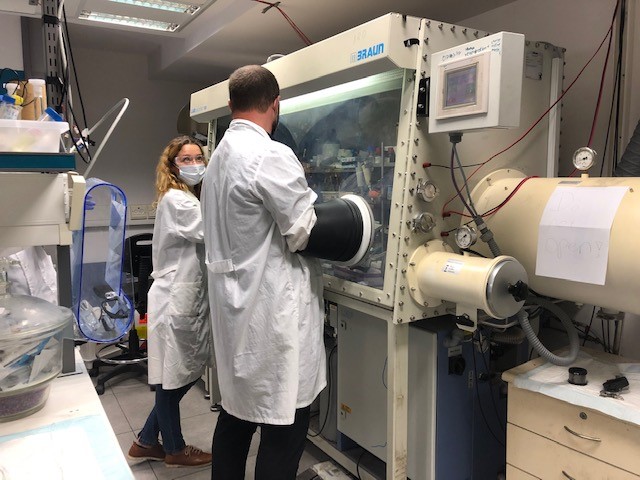The Department of Materials Science and Engineering offers several graduate degree programs:
These programs are open to graduates holding a BSc in engineering and to graduates of faculties of sciences (such as mathematics, physics and chemistry) from an accredited academic institution, as specified in the links.
These programs are intended for outstanding graduates holding BSc and MSc engineering degrees. Students with a BSc applying for admission to an MSc program will be required to complete additional credit points.
Advanced degree studies involve primarily scientific research. During the course of study students tackle research questions, learn approaches to solving them, acquire hands-on experience using a variety of experimental methodologies, learn how to analyze the results of their experiments and discuss their implications. The emphasis is on independent analytical thinking, keeping abreast of the current literature and gaining familiarity with emerging topics in the various disciplines of materials science and engineering.
Graduate students take advanced courses in topics relating to core subjects and research those topics. They participate in research under the guidance of the senior faculty members and take part in teaching and tutoring assignments in the Faculty’s laboratories.
Graduate students also take part in scientific and engineering research at the Materials Engineering Research Center, which encompasses a wide variety of important and advanced subjects. Some of the current research involves: metals and alloys, ceramics, polymeric and composite materials, electronic materials and thin films, nanocrystalline and amorphous materials, materials for energy conversion and storage, biomineralization and biomimetic crystal growth.
The Faculty’s courses and research encompass a wide range of topics, including:
The Faculty is equipped with state-of-the-art instrumentation for materials research: x-ray diffraction, optical microscopy, scanning electronic microscopy, analytical electronic microscopy, atomic force microscopy and nanoindentation, differential thermal analysis and calorimetry, dilatometry, mechanical testing and electrical testing, FTIR and more.
For additional information, contact
Merav Miller, Graduate studies coordinator
Telephone 077-8873845
mtgrad@technion.ac.il
Apply Now
Members of the Academic staff talk about research groups in the faculty.
- Assoc. Prof. Yaron Amouyal
- Asst. Prof. Yehonadav Bekenstein
- Assoc. Prof. Shlomo Berger
- Asst. Prof. Luai Khoury
- Asst. Prof. Yonatan Calahorra
- Assoc. Prof. Maytal Caspary Toroker
- Asst. Prof. Noy Cohen
- Prof. Yair Ein-Eli
- Prof. Gitti Frey
- Asst. Prof. Joshua M. Grolman
- Assoc. Prof. Yachin Ivry
- Asst. Prof. Yoav Kalcheim
- Prof. Wayne D. Kaplan
- Asst. Prof. Elad Koren
- Prof. Boaz Pokroy
- Prof. Eugen Rabkin
- Prof. Avner Rothschild
- Prof. Michael S. Silverstein
- Prof. Alejandro Sosnik



